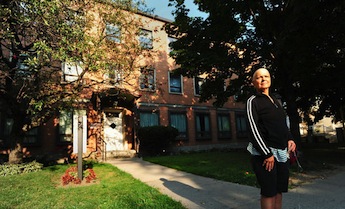Thank you for your response to the concerns of CARP members about the removal of nursing staff at Princess Margaret Lodge.
CARP members understand the fiscal and demographic challenges facing the province and our country, particularly as it relates to the health care system. We applaud your announcement in January regarding the Ontario Health Care Action plan to transform health care to a patient centred system and your commitment to provide “the right care, at the right time, in the right place”. Your ministry’s recognition and recommendation that the health care system should provide appropriate access and achieve equitable outcomes for rural, remote and northern Ontarians is central to the concerns raised and discussed in August in the Toronto Star and by Dale Goldhawk in September on cutbacks at Princess Margaret Lodge.
With respect, the health ministry’s recommendation to apply a ‘rural, remote and northern perspective’ to validate the appropriateness of provincial initiatives; should have been extended to this decision by UHN given the unique role that Princess Margaret Hospital and the Lodge serve in treating cancer patients from all over Ontario. Cancer remains one of the leading causes of illness and death in the Northeastern Ontario. Our residents have higher incidence rates in breast, colorectal and lung cancers when compared to the province. The conversion of the Lodge to a hostel from a post care facility to align it with the practice of other lodges abandons the leadership and service for which Princess Margaret is rightly nationally and internationally recognized.
To suggest as the CEO did on Goldhawk that intensifying services at the hospital is a more responsible use of resources is inconsistent with information contained in this week’s release of Jeffrey Simpson’s book “Chronic Condition” and the need to engage in honest and vigorous debate about “de-hospitalizing the system”. CARP’s ‘One Patient’ model of health delivery also promotes alternatives to re-hospitalization for people who need comprehensive post-acute care. The changes being implemented at the Princess Margaret Lodge will push people back into hospitals rather than offering a more appropriate place for respite and recovery.
Toronto patients may be sent home post operatively and supported by home care services but northerners who travel many hours to Toronto are more likely to be detained for longer periods to assess safety for travel. Post-operative bed capacity is at a premium in this province and emergency rooms are clogged with patients who could be better served elsewhere. Suggesting that medically fragile occupants at the Lodge can just call an ambulance and be taken to Princess Margaret or Sunnybrook if there is a medical crisis; fails on all levels, sensitively, medically and fiscally. The one encouraging comment from the CEO in his conversation with Goldhawk was that the decision was not cast in stone.
In 2012 The Cancer Society of Ontario reported a contribution of $23.6 million to research projects aimed at fighting cancer, up more than $3 million from last year. $31.4 million was invested to deliver support services aimed at helping cancer patients and their families, and over $3 million was devoted to lead advocacy efforts in communities across Ontario. When you add those resources to Ontario citizen’s tax contributions surely there is financial room to reverse the decision to remove nursing staff at Princess Margaret Lodge.
Thank you once again for your leadership on health care transformation. Your assistance in reviewing this matter is appreciated.
Sincerely,
Betty Dean, Chair, CARP Chapter 18


